A Pakistan High Commission official in Delhi had praised India for acting 'responsibly and maturely' in the aftermath of the Mumbai terror attacks, according to United States's official cables released by Wikileaks.
The official, whose name was deleted in the confidential cable, "praised the Indian government for acting 'more responsibly and maturely' than it did after the bombing of India's embassy in Kabul".
The cable, signed by then US envoy David C Mulford, spoke of strong demands projected in the Indian media for retaliatory action against terror camps in Pakistan.
India's earlier reaction 'impulsive and politically motivated'
It quoted the Pakistani official as saying that the Indian government's reaction to the bombing of its Kabul embassy was "impulsive and politically motivated when it immediately pinned blame on Pakistan's intelligence agency, the Inter-Services Intelligence".
According to the officer, the media's portrayal of how the 26/11 terror attacks would "negatively affect the bilateral relationship, will fizzle out over the next few months", the cable, dated December 1, 2008, said.
The officer said the Indian media had also projected the Manmohan Singh government's offer to ISI chief Ahmad Pasha to visit Delhi to cooperate in the investigation as 'summons', though the visit had been decided before the attacks.
'No Military Confrontation Anticipated'
He also "expressed dismay at what he described as the Congress party's use of political leverage with the media to focus on and embarrass Pakistan", the cable said.
The concluding comment on this issue by the US embassy was 'No Military Confrontation Anticipated'.
"Despite the strong diplomatic rhetoric we expect to see in the next several months, the chances of a military confrontation is being played down by most," stated the cable.
"The signposts of such a military conflict are absent: there has been no mobilisation of troops at the border, ambassadors have not been recalled, nor have there been requests by either side for a reduction in the number of diplomatic staff. Road, rail, and air-links are still operative," the cable said.
'Spectacularly inept' Shivraj Patil
After 26/11, the US felt that the removal of 'spectacularly inept' Shivraj Patil as home minister was inevitable, although he had been 'protected' by Congress chief Sonia Gandhi despite being found 'asleep on the watch' during earlier terror strikes in various cities.
According to a US diplomatic cable made public by Wikileaks, the then ambassador David Mulford said Congress was 'desperately seeking to limit the damage' as it was in 'deep political trouble' over its handling of the Mumbai attacks on November 26, 2008.
"In this environment, removal of the home minister was inevitable. He has over the last four years proved himself to be spectacularly inept," the cable said.
Patil 'asleep on the watch'
Image: Shivraj PatilMulford pointed out that in almost every incident of terrorism or communal violence -- Bangalore, Ahemdabad, Jaipur, Delhi, Uttar Pradesh, Guwahati, Samjhauta Express, Orissa, Karnataka, Jammu and Kashmir -- he has been 'asleep on the watch'.
"Each time there have been calls for his ouster, but Sonia Gandhi has protected him. The public's reaction to the Mumbai incidents has been such that even she could not save him this time," the cable said.
The cable, posted in The Guardian, said the firing of Patil and other changes were 'all intended' to convey a political message to the public that the government takes the Mumbai attacks seriously.

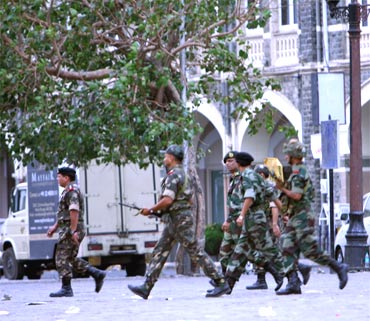
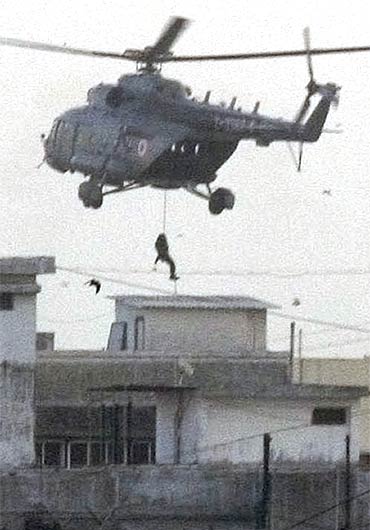
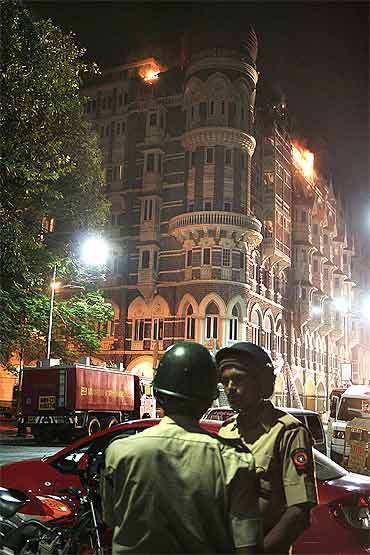
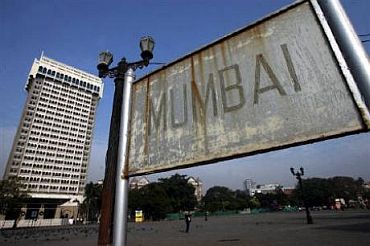
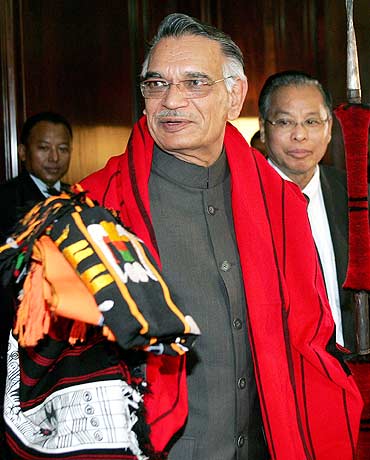
article